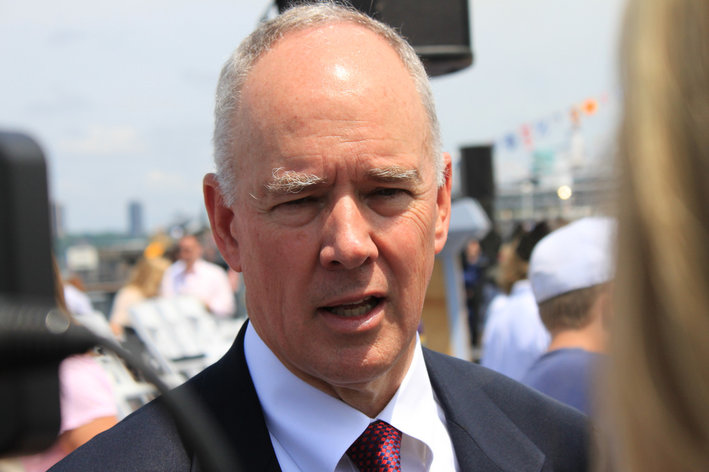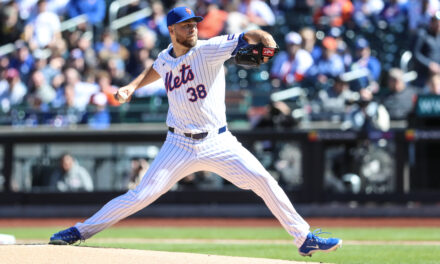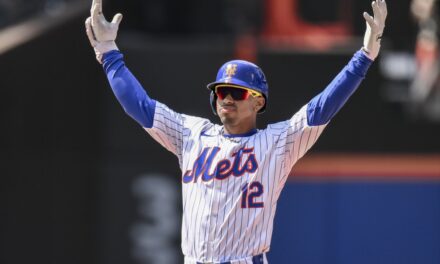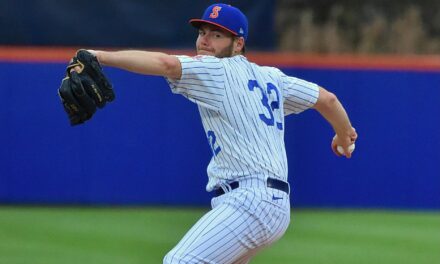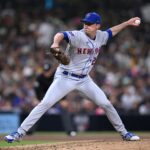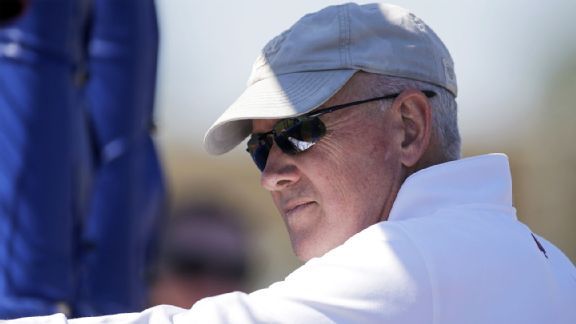
Sandy Alderson was never a professional baseball player. He never donned a major league uniform, he never stood in a box facing major league pitching, he never even coached. He ascended the ranks of Oakland’s front office through a business partnership with Roy Eisenhardt (whose father-in-law owned the team), though admittedly Alderson had shown a remarkable aptitude as an organizer and was already a consummate administrator. Under Alderson the A’s made it to three straight world series appearances and four division titles in 1988, 1989, 1990, and 1992.
Sandy Alderson is, on the other hand, a Vietnam veteran, an ex-Marine, a graduate of Dartmouth and then Harvard Law. Not a bad resume. His claim to fame in baseball circles revolves around his accomplishments in Oakland in the late 80’s when he overhauled their farm system propelling the team into contention, then switched his emphasis to “sabermetric principles” after being ordered to slash payroll in the 90’s. A precursor (and by some considered a mentor) to Billy Beane of Moneyball fame.
In October of 2010 when Alderson was introduced as the new Mets GM, he was asked whether he knew about Jose Canseco juicing. As reported at the time by Dan Martin of the NY Post (and others), he responded with the following:
“It’s hard to avoid it in light of Jose Canseco’s book. In a nutshell, I suspected Jose Canseco of doing steroids, but I never suspected Mark McGwire. It was a time as an organization we actually had begun to emphasize weight training as a part of a regimen that is now widespread, but at the time may have inadvertently gotten us involved with the steroid aspect.”
He added that the team looked into testing its own players, but was unable to as it would have been illegal in California at the time.
“If you go back and put all that in perspective, do I wish we had done more? I think that’s almost always true in retrospect.”

Under Alderson the A’s drafted players like Mark McGuire and Walt Weiss as Jose Canseco bulked up in the Minors. In that same introductory press conference he went on to say:
“We actually had a very active minor league drug policy at the time that included the prohibition of amphetamines. But you’re talking about a time in the late ’80s when this issue was emergent in a general sense and there was a personal sense of a lack of awareness, lack of knowledge and ultimately a lack of tools to deal with the problem.”
With this, it appeared the book was closed on the issue of Alderson’s complicity in PED abuse. I believe he was aware of what was happening in his newly outfitted weight rooms (every major league team was in some shape or form bulking up by then), but his hands were tied. So, in a “if you can’t beat em join em” kind of way he went about drafting big framed power hitters.
In the end he was an employee like any other of the Oakland Athletics, and if anyone should be complicit in PED abuse, you might argue it is the owners who are more responsible (the juicing was happening in their workplaces, with their knowledge) and even then they’d only (legally) be on the hook for lost wages in suits brought against them by minor leaguers who did not juice. Players of comparable talent who got passed over. These lawsuits never got off the ground due to questionable legal merits, the lack of credible plaintiffs, and the difficulty proving someone did not use while projecting performance (and future salary) based on minor league promise … But that’s not what this story is about. This story is about whether Sandy Alderson is gaming the system … again.
It occurred to me recently that those early 90’s Oakland teams sure were stacked offensively … I say this because I was thinking about how woefully lacking our current Met offense appears to be. What gives? Where are our “Bash Brothers” ?? Where are our three consecutive Rookie of the Years (all power laden position players)?
Strange isn’t it, or, maybe not.
I’m not sure “gaming the system” is the right term for what I believe Alderson is doing. It’s more like opportunism with a side of exploitation. And just to be clear, I am not bashing Alderson … in fact I’m sort of praising him. I think he’s outsmarted a lot of people all the while persisting in an approach that has been assailed as only an approach can be assailed (in NY), ruthlessly.
Forget about OBP, forget about plate discipline, forget about power hitters. That is so very “1990’s.” The steroid era went out with wallet chains and the Backstreet Boys. We’re ALL missing the point, the offense sucks, yeah, so what? It’s not about offense, it’s about pitching.
“What?” You say, incredulous. “But we’ve assembled a Moneyball dream team, they’re all about OBP, getting on base, taking walks.” That perception is not only wrong now, for reasons I will illustrate shortly, it’s not even an accurate description of Moneyball back then. I think people who think Moneyball is about OBP simply haven’t read the book. In a nutshell the approach is about finding hidden value and stockpiling talent in the aggregate as a commodity.
In the late 80’s the “target skill” was getting on-base because at the time it was undervalued. So a process was implemented system-wide whereby the ability to get on base was stockpiled (in the aggregate – which is to say the skill was spread out over entire rosters instead of focused on one or two players who might walk when their contract is up).
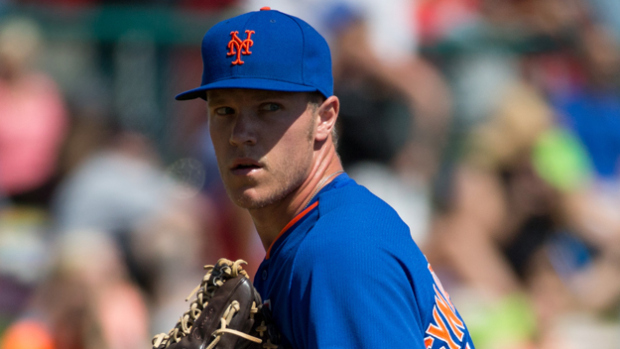
Now lets fast forward to 2010. Sandy has just returned from the Dominican Republic where he’d spent time cleaning up rampant institutional corruption involving agents and team employees exploiting 16-year olds. He is offered a job in NY. He is an MLB insider and has cooperated extensively with the Mitchell report. He has voluminous knowledge of MLB’s plans to continue to come down hard on PED’s. His understanding of these proceedings was probably more intimate than any other GM at the time.
So what do you think he’s going to tell his big-brained minions? Go after hulking body builders who crack tape measure home runs and take lots of walks? I think not. The approach is going to focus on securing big durable pitchers with fluid repeatable deliveries, because as MLB rosters are weaned off the juice, pitching will become an even more valuable commodity than it ever was before. Simple as that.
Say hello to Zack Wheeler, Noah Syndergaard, Rafael Montero, Michael Fulmer, and Robert Whalen, not to mention holdovers Harvey, Matz, deGrom and Mejia … the list is deep and rich in talent.
Whatever happens in the coming seasons, we know one thing, the Mets, thanks to Alderson and his braintrust, will have some pitching, and if offensive stats across the league over the past few seasons are any indication, this team will be uniquely positioned to remain competitive. And that’s a good thing Mets fans, that’s a very good thing.


